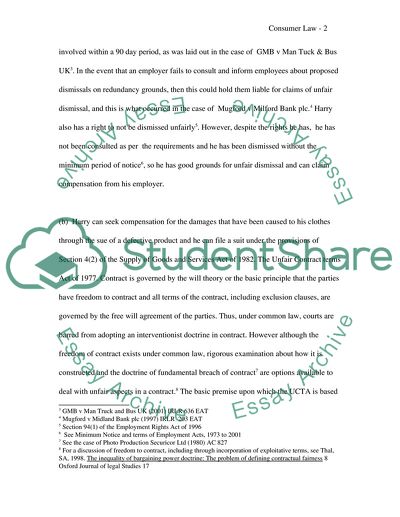Cite this document
(Consumer Law: Analyzing Harry's Problems Essay Example | Topics and Well Written Essays - 3250 words, n.d.)
Consumer Law: Analyzing Harry's Problems Essay Example | Topics and Well Written Essays - 3250 words. Retrieved from https://studentshare.org/law/1704049-consumer-law-for-question-see-assignment-criteria-below
Consumer Law: Analyzing Harry's Problems Essay Example | Topics and Well Written Essays - 3250 words. Retrieved from https://studentshare.org/law/1704049-consumer-law-for-question-see-assignment-criteria-below
(Consumer Law: Analyzing Harry'S Problems Essay Example | Topics and Well Written Essays - 3250 Words)
Consumer Law: Analyzing Harry'S Problems Essay Example | Topics and Well Written Essays - 3250 Words. https://studentshare.org/law/1704049-consumer-law-for-question-see-assignment-criteria-below.
Consumer Law: Analyzing Harry'S Problems Essay Example | Topics and Well Written Essays - 3250 Words. https://studentshare.org/law/1704049-consumer-law-for-question-see-assignment-criteria-below.
“Consumer Law: Analyzing Harry'S Problems Essay Example | Topics and Well Written Essays - 3250 Words”, n.d. https://studentshare.org/law/1704049-consumer-law-for-question-see-assignment-criteria-below.


